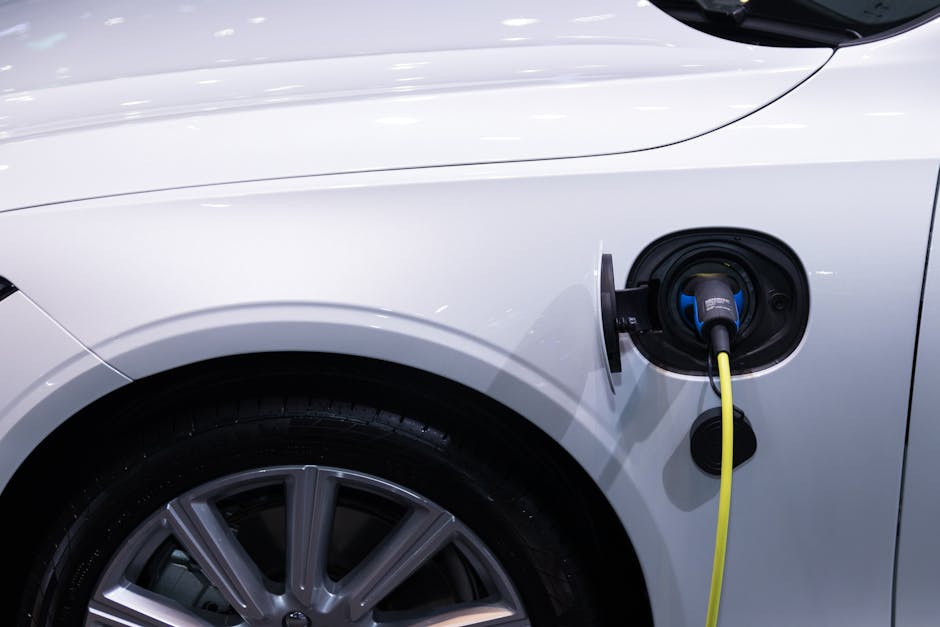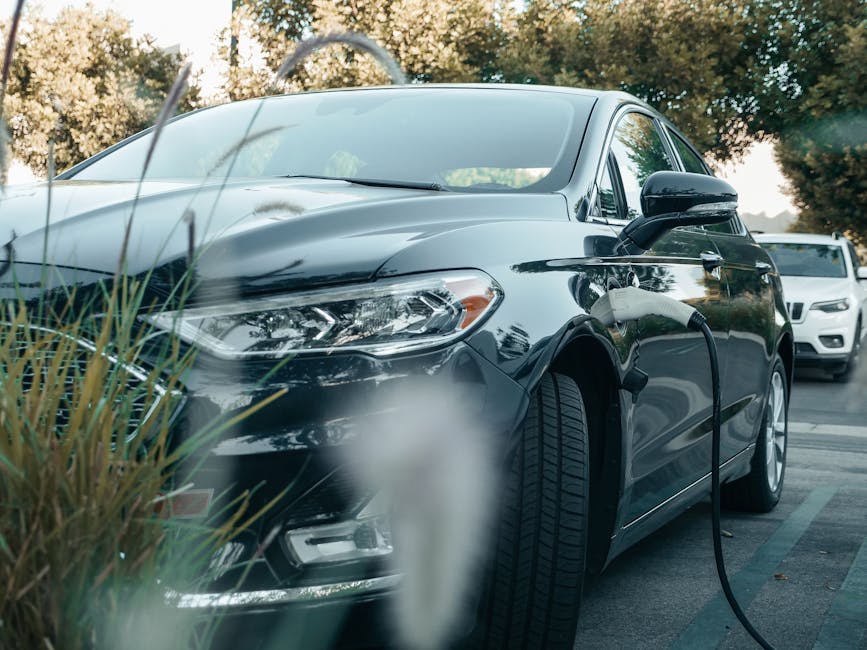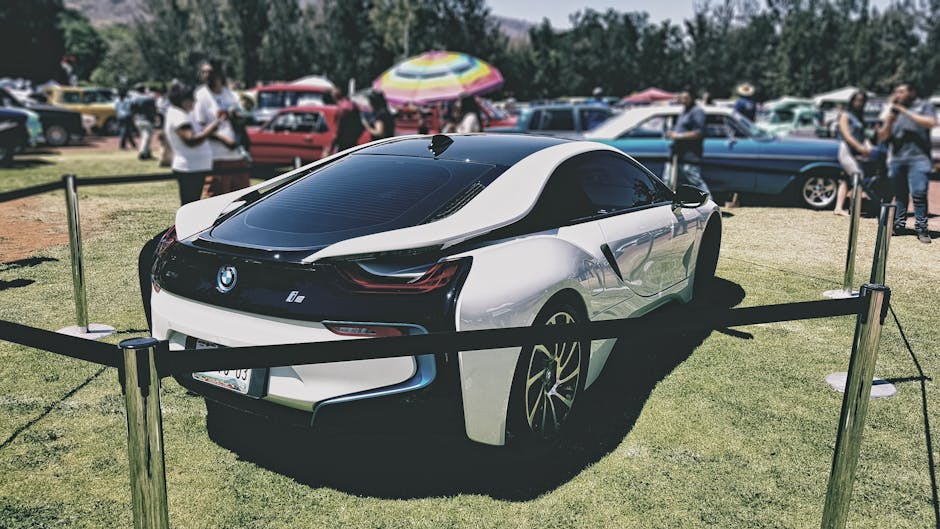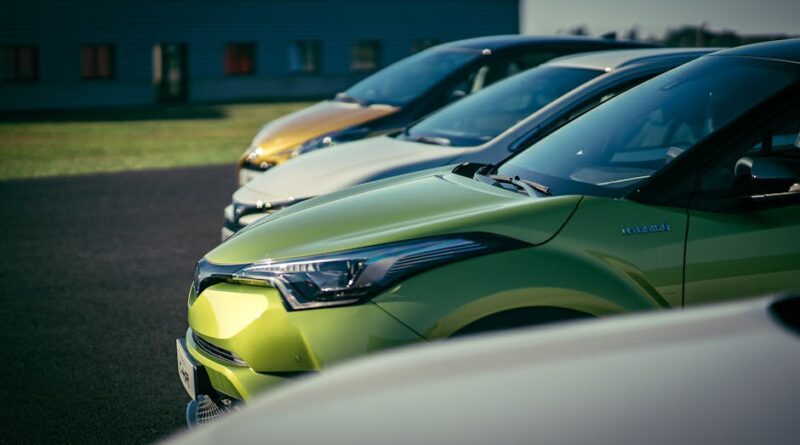Exploring the Pros and Cons of Hybrid Vehicles
When it comes to the world of automobiles, the landscape is constantly evolving. With a growing emphasis on sustainability and environmental consciousness, hybrid vehicles have emerged as a popular choice for many drivers. Combining the benefits of traditional internal combustion engines with electric power, hybrid vehicles offer a unique blend of efficiency and eco-friendliness. However, like any technological innovation, hybrid vehicles come with their own set of advantages and disadvantages. In this comprehensive guide, we will delve into the pros and cons of hybrid vehicles, exploring the various aspects that make them both a compelling and a challenging option for consumers.
The Advantages of Hybrid Vehicles

Hybrid vehicles have gained popularity in recent years due to their numerous advantages. Let’s take a closer look at some of the key benefits of driving a hybrid.
1. Fuel Efficiency
One of the most significant advantages of hybrid vehicles is their superior fuel efficiency. By combining the power of an internal combustion engine with an electric motor, hybrids are able to achieve higher fuel economy compared to traditional gasoline-powered vehicles. This not only helps drivers save money on fuel costs but also reduces their carbon footprint, making hybrids an environmentally friendly choice.
According to a study by the U.S. Department of Energy, hybrid vehicles can achieve up to 50% better fuel efficiency than their conventional counterparts. This means that drivers can go further on a single tank of gas, saving both money and resources in the process.
2. Environmental Impact
Another significant advantage of hybrid vehicles is their reduced environmental impact. With lower emissions of greenhouse gases and pollutants, hybrids are considered a cleaner alternative to traditional gasoline-powered vehicles. This is particularly important in today’s world, where concerns about climate change and air quality are at the forefront of public discourse.
By driving a hybrid vehicle, individuals can contribute to reducing air pollution and mitigating the effects of climate change. This not only benefits the environment but also helps to create a healthier and more sustainable planet for future generations.
3. Tax Incentives
In many countries, governments offer tax incentives and rebates to encourage the adoption of hybrid vehicles. These incentives can take the form of tax credits, reduced registration fees, or other financial incentives that make hybrids more affordable for consumers. By taking advantage of these incentives, drivers can save money upfront and enjoy the long-term benefits of owning a hybrid vehicle.
For example, in the United States, the federal government offers a tax credit of up to $7,500 for the purchase of a new hybrid vehicle. This can significantly offset the initial cost of buying a hybrid and make it a more attractive option for budget-conscious consumers.
4. Regenerative Braking
Hybrid vehicles are equipped with regenerative braking technology, which allows them to convert kinetic energy into electrical energy during braking. This energy is then stored in the vehicle’s battery and used to power the electric motor, reducing the overall fuel consumption of the vehicle. By harnessing the power of regenerative braking, hybrids are able to maximize their efficiency and reduce wear and tear on the braking system.
Regenerative braking not only improves the fuel economy of hybrid vehicles but also extends the lifespan of the braking components, resulting in lower maintenance costs for drivers. This innovative technology sets hybrids apart from traditional vehicles and showcases their commitment to sustainable and efficient driving practices.
5. Silent Operation
One of the unique features of hybrid vehicles is their silent operation. When running on electric power alone, hybrids produce minimal noise, creating a quiet and peaceful driving experience for passengers. This is particularly beneficial in urban environments, where noise pollution is a growing concern.
Drivers of hybrid vehicles can enjoy a serene and relaxing driving experience, free from the rumble of a traditional combustion engine. This not only enhances the comfort of the passengers but also contributes to a more pleasant and enjoyable journey for everyone on board.
The Disadvantages of Hybrid Vehicles

While hybrid vehicles offer a range of benefits, they also come with certain drawbacks that consumers should consider. Let’s explore some of the key disadvantages of owning a hybrid vehicle.
1. Higher Initial Cost
One of the main drawbacks of hybrid vehicles is their higher initial cost compared to traditional gasoline-powered vehicles. Due to the advanced technology and components used in hybrids, they tend to be more expensive to purchase upfront. This can deter budget-conscious consumers from investing in a hybrid vehicle, despite the long-term savings on fuel and maintenance.
However, it’s worth noting that the gap in price between hybrids and conventional vehicles is gradually narrowing as the demand for hybrid technology increases. Manufacturers are working to make hybrids more accessible to a wider range of consumers by offering competitive pricing and incentives to drive adoption.
2. Limited Electric Range
Another drawback of hybrid vehicles is their limited electric range. While hybrids are designed to run on both gasoline and electric power, they are typically unable to travel long distances on electric power alone. This means that drivers may need to rely on the internal combustion engine for longer trips, reducing the overall fuel efficiency of the vehicle.
As battery technology continues to improve, the electric range of hybrid vehicles is expected to increase, offering drivers more flexibility and autonomy in their driving habits. However, for now, the limited electric range remains a significant drawback for some consumers who prioritize electric-only driving.
3. Maintenance and Repairs
Hybrid vehicles require specialized maintenance and repairs due to their unique technology and components. This can result in higher costs for servicing and repairs compared to traditional vehicles. Mechanics with expertise in hybrid technology are often needed to diagnose and fix issues with hybrid vehicles, which can be more challenging to find in some areas.
Additionally, the batteries used in hybrid vehicles have a limited lifespan and may need to be replaced after a certain number of years or miles. The cost of replacing a hybrid battery can be substantial, potentially offsetting the fuel savings accumulated over time.
4. Performance Trade-offs
Hybrid vehicles are known for their fuel efficiency and environmental benefits, but they may come with performance trade-offs compared to traditional gasoline-powered vehicles. Due to the dual powertrain system and regenerative braking technology, hybrids may have less power and acceleration than their non-hybrid counterparts.
While this may not be a major concern for everyday driving, performance enthusiasts and drivers who prioritize speed and agility may find hybrid vehicles lacking in this aspect. However, it’s essential to note that some hybrid models, such as plug-in hybrids and hybrid sports cars, offer improved performance without compromising on fuel efficiency.
5. Charging Infrastructure
One of the challenges of owning a hybrid vehicle is the availability of charging infrastructure. While hybrids do not require external charging like electric vehicles, plug-in hybrids and hybrid electric vehicles (HEVs) may need access to charging stations to recharge their batteries. In some areas, the lack of charging infrastructure can limit the practicality and convenience of owning a hybrid vehicle.
As the demand for hybrid vehicles grows, governments and private companies are investing in expanding the charging network to accommodate hybrid owners. However, the availability of charging stations remains a barrier for some consumers, especially in rural or less developed areas.
Expert Opinions

To provide a well-rounded perspective on the pros and cons of hybrid vehicles, we reached out to several experts in the automotive industry. Here’s what they had to say:
1. Dr. Emily Green, Environmental Scientist
“Hybrid vehicles are a step in the right direction towards reducing our carbon footprint and combating climate change. By combining the benefits of electric power with the flexibility of gasoline engines, hybrids offer a practical solution for eco-conscious consumers.”
2. Mike Johnson, Automotive Engineer
“While hybrid vehicles have made significant advancements in recent years, there are still challenges to overcome, such as battery technology and charging infrastructure. As the industry continues to innovate, we can expect hybrids to become even more efficient and affordable in the future.”
Conclusion

To wrap things up, hybrid vehicles offer a compelling mix of advantages and disadvantages for consumers to consider. From their superior fuel efficiency and environmental impact to their higher initial cost and maintenance requirements, hybrids present a complex picture of the future of automotive technology. As the industry continues to evolve and innovate, hybrid vehicles are likely to play a significant role in the transition towards a more sustainable and eco-friendly transportation system.
Whether you’re a green-conscious driver looking to reduce your carbon footprint or a performance enthusiast seeking the latest in automotive technology, hybrid vehicles offer a diverse range of options to suit your needs. By weighing the pros and cons of hybrid vehicles carefully, you can make an informed decision about whether a hybrid is the right choice for your lifestyle and driving habits.
As we look towards the future of transportation, hybrid vehicles stand as a testament to the ingenuity and creativity of the automotive industry. With ongoing advancements in technology and a growing focus on sustainability, hybrid vehicles are poised to lead the way towards a cleaner and greener future for all.




